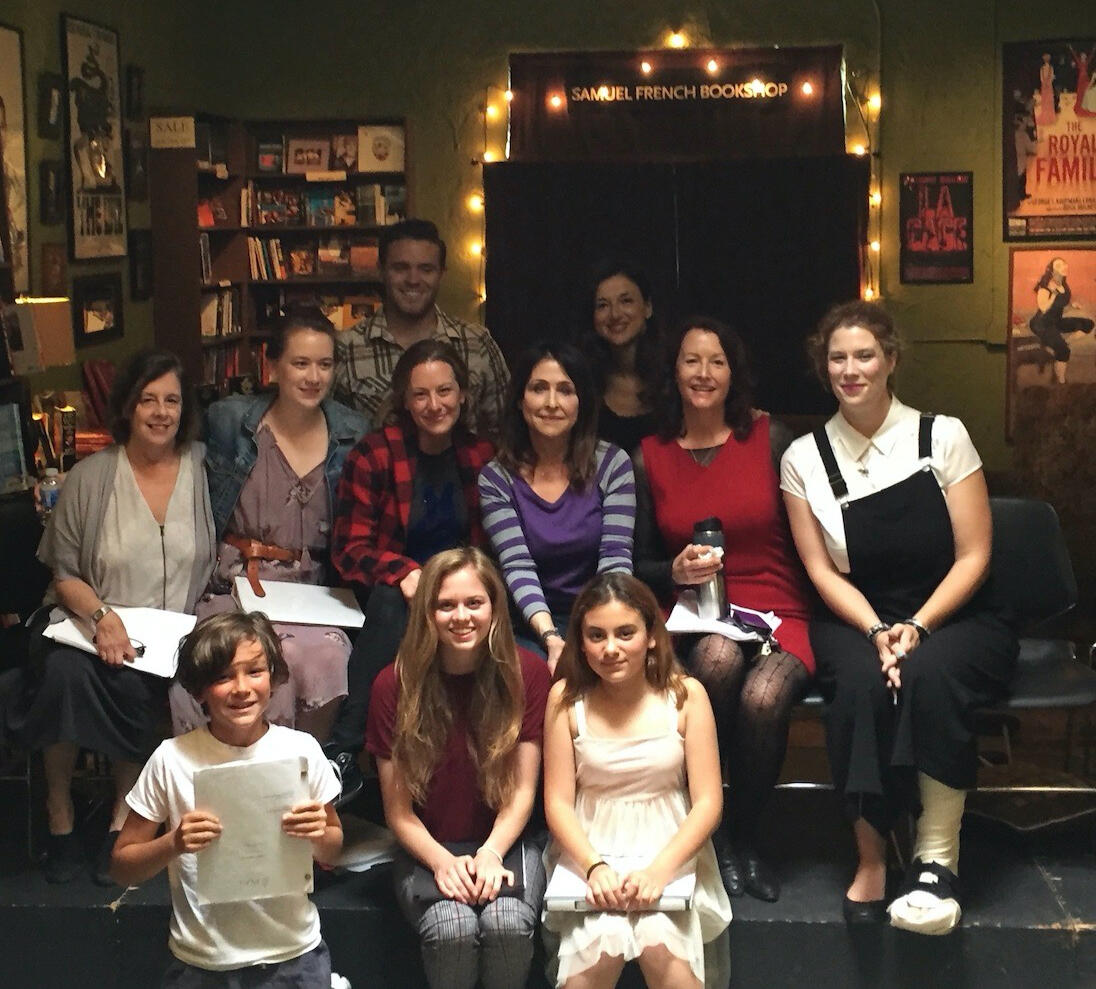MakeMagic believes in the power of a great story to move, enlighten & entertain.Great storytelling can open minds & hearts and change how we see the world.There is meaning & purpose to our lives, we are more than this physical reality, and we are not alone ...... are themes that resonate throughout MakeMagic projects.
JOHN MACK THE BELIEVER
~ One of the most compelling and relevant stories of our time that has the potential to spark
a sincere conversation that we are not alone in the Universe. ~
WATCH the VIDEO of the STORY:
"John, if only you had called it a new psychiatric syndrome of unknown cause, rather than asking Harvard to change its notions of reality."
– Dean of Harvard Medical School
~~ Listen to audios of some of the real people in the story ~~
Listen to a BBC reporter (45 sec)
Listen to Dr. John Mack (30 sec)
Listen to Harvard Professor Alan Dershowitz (30 sec)
Listen to lawyer Eric MacLeish defend Dr. Mack (20 sec)
Listen to Dr. John Mack (30 sec)
~ PRESS ~
Read a Vanity Fair article about John Mack ... "Alien Nation: Have Humans Been Abducted by Extraterrestrials?"Listen to the BBC Radio 4 documentary about John Mack... Abduction, Alienation and Reason (30 min, mp3)Read an interview with writer/producer Denise David-Williams by British journalist Robbie GrahamListen to an interview with writer/producer Denise David-Williams on the Martin Willis show (35 min, mp3)
Has a deceased loved one ever sent you a sign from the other side?
Can the dead communicate with us?
Is it possible?
Is it real?
LOVE AFTER
A Love Story ... like no other.
What films compare to
LOVE AFTER?
In 1990, a drama-romance called "GHOST" told the fictional story of a spirit who came back to save his lover's life. Life after death was not popular subject at that time, but the movie grossed over $500 million dollars. In today's dollars, that's over a billion. And that film was a fantasy...
LOVE AFTER
is a true story and the subject has exploded...
ACCORDING to a 2023 PEW RESEARCH STUDY:
57% of respondents around the world think there is life after death. (4 billion people).
Over half of US adults say they have been visited by a dead family member in the last twelve months.
Seven-in-ten Americans say it is possible to feel the presence of someone who has died.
A film for our times...
Written by
Denise David-Williams and Caron Tate
OSCAR DIVO
Story by Jan Vander Laenen
Screenplay by Chris Duarte and Jan Vander LaenenDirector: Johnny Coppola
Set in the beauty of the French Riviera and Monaco,
OSCAR DIVO is a father-son reconciliation comedy that is fast-paced, hilarious and heart-warming....
~ READ THE SCREENPLAY ~
A GOOD AMERICAN
A Good American is an emotional journey that
examines the power of love, the struggles of grief
and the enduring resilience of family.
An autobiographical play
by
Denise David-Williams
WATCH the PLAY HERE:
"Absolutely spellbinding!""Rich, powerful and touching""A Good American will move you, shock you, make you laugh
and make you cry""An amazing, beautiful story""Ranks up there with O'Neill
and Miller"
Torn between an upstairs / downstairs
life of secrets and lies because
of her parents bitter arguments
over their different religions,
a young woman desperately
tries to discover her own
identity and break the cycle
of prejudice and religious
conflict that has devastated
her family and emotionally
crippled her.
A Good American
was performed and filmed at:
The Loft Ensemble,
North Hollywood, CA
as the featured selection in the
VOICES of WOMEN THEATRE FESTIVAL,
July 2022
~~~~~~~~~~~~~~~~~
A GOOD AMERICAN
Table Read
sponsored by
SAMUEL FRENCH
June 24th, 2019



MY DINNER WITH OVITZ
Conceived and written by: Steve Young
Directors: Steve Young and John Rhode
Producer: Denise David-Williams
Editor: Brian Hanish
"The most buzzed-about underground project since
Trey Parker and Matt Stone's “The Spirit of Christmas.”
- Variety
"Me and Geffen were pissin' in our pants! it was brilliant!"
- Universal chief, Ron Meyer
PACKAGES WRAPPED IN FUCHSIA TULLE
began arriving around Hollywood by messenger.
Inside was a videotape labeled My Dinner With Ovitz, a 12-minute homage
to The Godfather, distributed in a limited edition of 75 by two L.A. filmmakers,
director-writer Steve Young and producer Denise David-Williams,
the owner-president of MakeMagic Productions.
LA WEEKLY
What does a powerful man do when faced with adversity?
Blame everyone else - and do it publicly - in Vanity Fair magazine.Ovitz’s blame list included NY Times writer, Bernie Weinraub former partners,
Rick and Julie Yorn, Limp Bizkit manager, Jeff Kwatinetz, who purchased Ovitz’s
failing AMG and AT&T Chairman, Michael Armstrong.
But at the head of Ovitz’s enemy list sits
David Geffen, the so-called don of the so-called, gay mafia.Ovitz believed “They wanted to kill me and take my kids" and
threatened to “beat the shit out of Geffen.” So just how much can Geffen
and his “soldiers”, Diller, Meyer and Eisner, take? Not much it seems.Watch what happens when a Hollywood power broker
suffers a severe power outage. It’s showbiz history,
and as we all know, there is absolutely
No business. like show business!
Watch: My Dinner With Ovitz
on YouTube
~ READ the REVIEWS ~
by Michael Speier
The gay Mafia fires back in My Dinner With Ovitz, a gonzo short making its way to those who still
have it in for the ex-CAA topper. Re-creating one of “The Godfather's” most famous scene —
Michael Corleone dines with and then whacks Virgil Sollozzo and Capt. McCluskey —
pic is the most buzzed-about underground project since Trey Parker and Matt Stone's “The Spirit of Christmas.”As whipping boys, Michael Eisner, Ron Meyer, David Geffen and Barry Diller are skewered quite nicely,
while Steven Seagal steals the show. No, really.After pitching a musical version of Showgirls meets Burn Hollywood Burn, Joe Eszterhas agrees
to drive, and the Geffen-Ovitz showdown takes place at The Mother Lode, a West Hollywood bar
that serves as the setting for a stop-the-madness discussion.Funniest bit comes when Seagal asks for veal parmesan — “hold the cheese” — and instead is served
a plate of nachos. According to Ovitz, his karate instructor is too stupid to tell the difference.Director-writer Steve Young and producer Denise David-Williams' cheap-o production values aside,
there is something very charming about Dinner due to its downright bitchiness.Geffen calls UTA a bunch of shmucks and claims that the trades are on his payroll. But it's even snarkier
when it hits close to home: Geffen wants assurances that Ovitz, having already talked to Vanity Fair,
won't now talk to GQ ... or worse yet, Peter Bart.The truth hurts.
by Nikki Finke
DEADLINE HOLLYWOOD: A HIT FOR OVITZ
Spoof video takes on the fallen Disney prez
PACKAGES WRAPPED IN FUCHSIA TULLE (“because pink was way too obvious”)
began arriving around Hollywood by messenger.Inside was a videotape labeled My Dinner With Ovitz, a 12-minute homage
to The Godfather, distributed in a limited edition of 75 by two L.A. filmmakers, director-writer
Steve Young and producer Denise David-Williams, the owner-president of MakeMagic Productions.Shot with a DV cam over a few days (“for a lot less than one of David Geffen's car payments”),
the spoof was born in July when Young read Michael Ovitz's notorious Vanity Fair interview
claiming the industry's “gay mafia” ruined him.“What's the hottest topic in Hollywood right now?” Young asked David-Williams. “Ovitz" she replied.
Three days later, Young handed her a 15-page script, and David-Williams said, "Let's do it!"Next, David-Williams roped in every friend, including famed New York fashion designer,
David Goodman, in town to do a trunk show. “I knew he could pull off David Geffen,” she recalls.The actors mimic Geffen's indignation, Michael Eisner's sarcasm, Barry Diller's bossiness
and Ron Meyer's common sense.In fact, Young was shocked when [Meyer called to say -
“Me and Geffen were pissing in our pants. It was brilliant!"As for Ovitz, Young admits, “We might have forgotten to send him one.”
by Lorenza Munoz
'Dinner' Roasts Ovitz, With 'Godfather's' Help
A 12-minute film that pokes fun at Michael Ovitz for his tell-all Vanity Fair interview in August
is making the rounds in Hollywood.The filmmakers, Steve Young and Denise David-Williams, decided to make My Dinner With Ovitz
after reading the eyebrow-raising article in which Ovitz blamed his demise in the industry
on the so-called gay mafia.In the article, Ovitz points a finger at some of Hollywood's most prominent players — including
DreamWorks co-founder ,David Geffen, Disney Chairman, Michael Eisner, Vivendi Universal Chairman,
Barry Diller and President, Ron Meyer — for his colossal failures after leaving the agency
he co-founded, Creative Artists Agency.Writer-director Young said he just wanted to have a little fun. "It's a great joke,” Young said.
“It's Hollywood history, and I'm a satirist, it's what I do.”Young said the tape is not for sale but that he and David-Williams distributed about 75 copies,
including to Geffen, Eisner, Diller and Meyer.“We got it around to people who would get the joke," said Young, who adapted quotes from
Vanity Fair and lines from The Godfather as dialogue.
Watch: My Dinner With Ovitz
on YouTube
After earning a B.A. in Theatre Arts from Hofstra University, Ms. David-Williams attended the University of Southern California Peter Stark graduate film producing program. She then began her career as a production assistant at Lucasfilm and Steven Spielberg's Amblin' Entertainment.Subsequently, Ms. David-Williams worked with scores of A-list writers and directors on dozens of major motion pictures as:Story Editor - 20th Century Fox, The IndieProd Company
Story Editor, film and tv - The Movie Company
Director of Creative Affairs - Arkoff International Pictures
Vice President of Production - Kopelson Entertainment where she developed and shepherded film and television projects for both domestic and international markets. Among the many projects under her auspices were Warlock, Triumph of the Spirit and Platoon, which grossed over $100 million dollars and garnered Best Director and Best Picture Academy Awards for director Oliver Stone and producer Arnold Kopelson, respectively.Under the MakeMagic banner, Ms. David-Williams is:Producer/writer of the motion picture, John Mack The Believer
Producer/co-writer with Caron Tate, of the film, Love After
Producer of the American adaptation of the French comedy, Oscar Divo
Playwright/Producer of the award-winning autobiographical play, A Good American
chosen as the Official Selection in the 2022 VOICES OF WOMEN THEATRE FESTIVAL.Ms. David-Williams is married to musician/composer/arranger Larry WilliamsMs. David-Williams is a member of the Dramatists Guild of America, west
and a Script Consultant.
Legal Representative
Jay S. Kenoff, Esq.
312 South Beverly Drive
Beverly Hills, CA 90212
jay@km-entertainmentlaw.com
310-552-0808
Manager:
Marilyn Atlas Management
132 S. Lasky Drive
Beverly Hills, CA 90212
matlas704@yahoo.com
310-278-5047
Contact Us
MakeMagic does not accept unsolicited material.



















































































